Business
Samsung Electro-Mechanics announced to close its RFPCB business
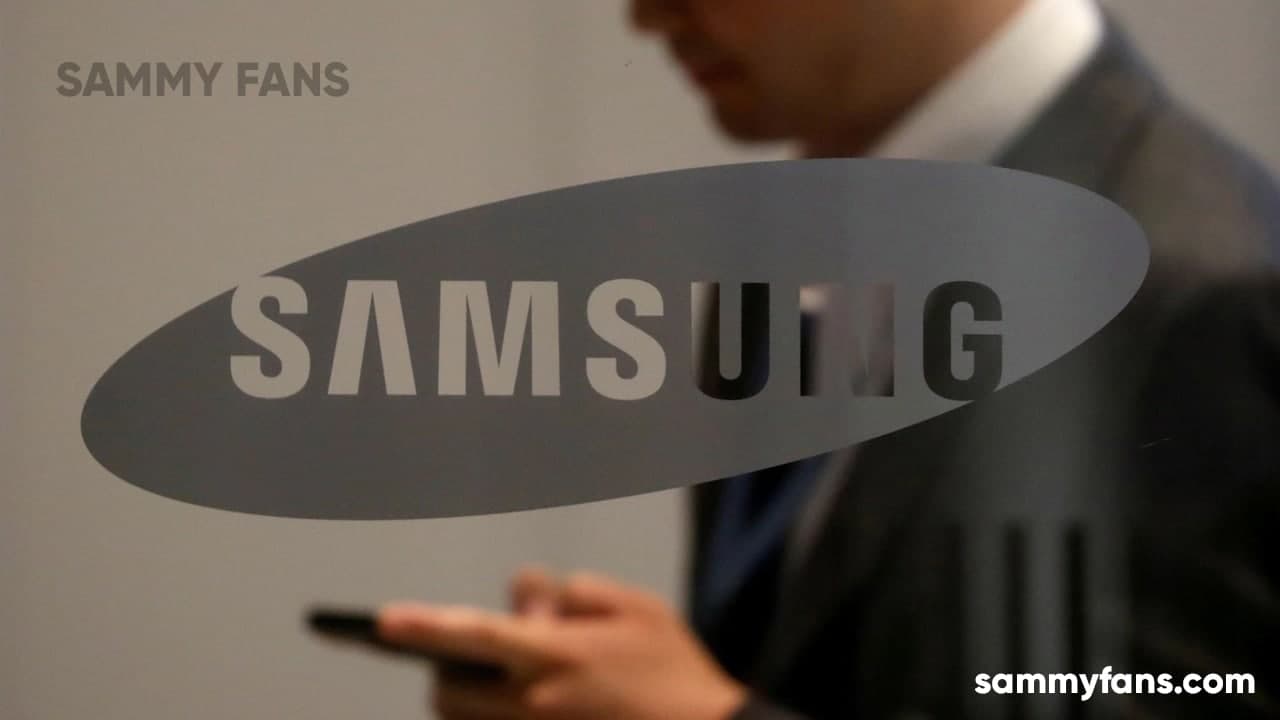
Samsung Electro-Mechanics has officially announced that it has withdrawn from RFPCB’s business. Of the 400 billion won generated from the annual sales made by Samsung Electro-Mechanics in the RFPCB business, Apple’s 300 billion won sales have already emerged as a concern. And, BH and Youngpoong Electronics are expected to benefit from the show, and the price will be key.
According to the Korean media TheElec report, Samsung Electro-Mechanics announced that it would temporarily suspend RFPCB’s manufacturing business in its Vietnamese industry. The number of business suspensions is 427.8 billion won.
The RFPCB is the part that connects the organic light-emitting diode (OLED) panel to the mainboard. The RFPCB has strong and flexible structures, so it is easy to design a product and transfer electrical signals quickly.
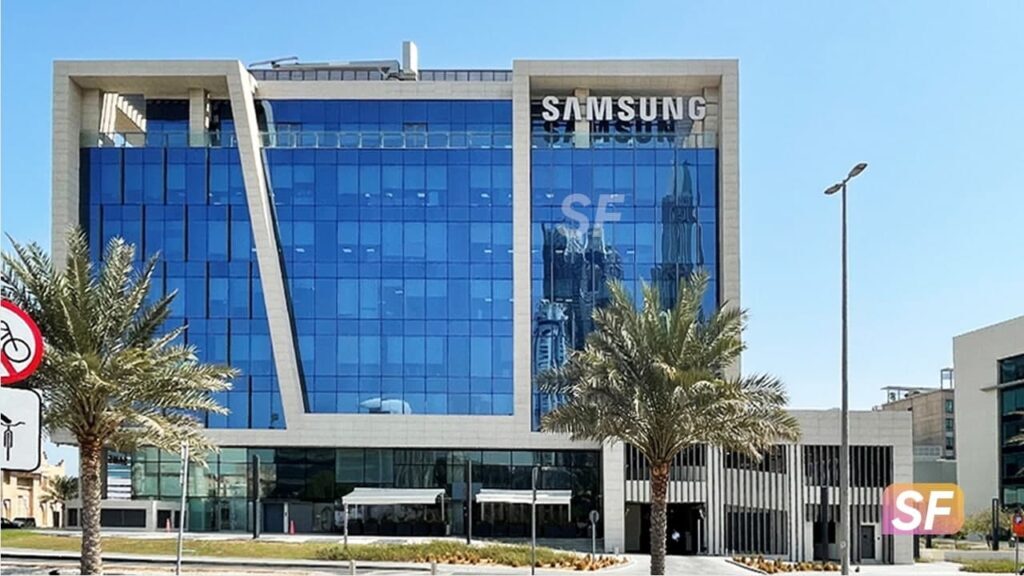
The main customers of Samsung Electro-Mechanics’ RFPCB business are Apple and Samsung. Apple’s annual sales exceeded 300 billion won, with sales of Samsung and Chinese manufacturers totaling 100 billion won annually. Samsung Electro-Mechanics produced an annual sales of the 400 billion won RFPCB business but recorded a loss of 50 billion won.
With Samsung Electro-Mechanics withdrawing from the RFPCB business, Apple’s shipping direction is troubling. Apple’s existing RFPCB partners, BH and Youngpoong Electronics are likely to launch Samsung Electro-Mechanics.

This year, the market share of the Apple 13 RFPCB series is reported to be between 50% BH, 30% Samsung Electro-Mechanics, and between 10% Youngpoong Electronics. Samsung Electro-Mechanics and BH had the same rating until last year, but as Samsung Electro-Mechanics decided to withdraw from RFPCB’s business, BH’s exports increased.
If Samsung Electro-Mechanics’ volume is split between BH and Youngpoong Electronics, the RFPCB market share for new iPhones next year can be expected to reach 70% BH and 30% for Youngpoong Electronics.
Samsung Electro-Mechanics is known to lose an annual 50 billion won in the RFPCB business due to fixed costs and other loads. Samsung Electro-Mechanics seriously considered withdrawing from the RFPCB business after the iPhone 12 series last year, but the withdrawal was delayed for about a year.
Business
Samsung leads Q3 smartphone market, Huawei’s entry haunts Apple
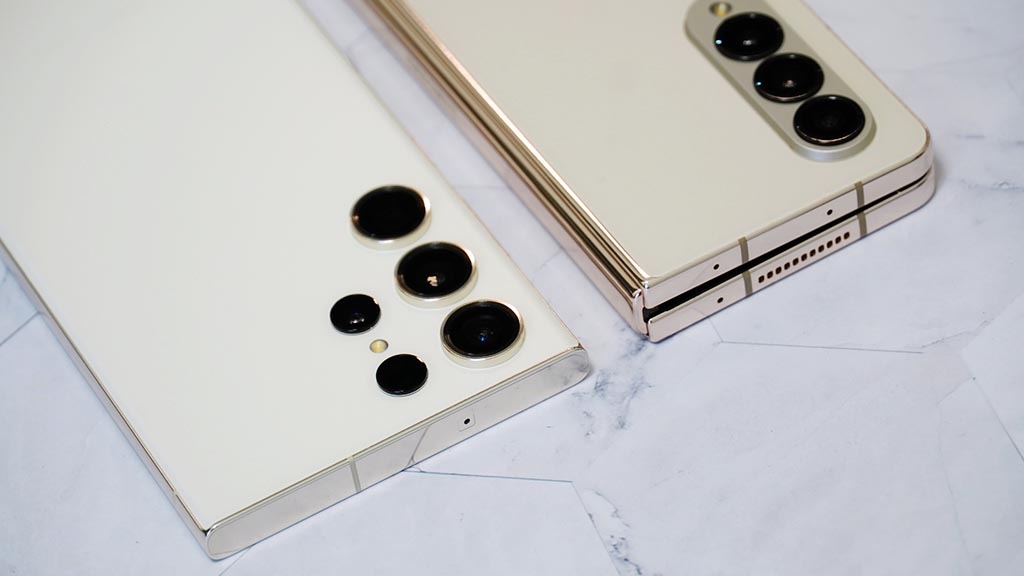
Samsung ranked first in market share in the global smartphone market in Q3, 2023. TrendForce report says that Samsung led the global Q3 smartphone market, recording a market share of 19.5%.
Overall production in the third quarter increased by 11.5% compared to the previous quarter to 60.1 million units. During the same period, Apple’s production increased by 17.9% to 49.5 million, thanks to iPhone 15.
Follow our socials → Google News | Telegram | X/Twitter | Facebook | WhatsApp
Third place was taken by Xiaomi (13.9%), followed by Oppo (12.6%) and Transion (8.6%). 6th place is Vivo (8%). Meanwhile, global smartphone production reached 308 million units, a 13% increase compared to the previous quarter and a 6.4% increase from the previous year.
Huawei’s re-entry into the flagship smartphone market targeting Apple has had a significant impact in China. Huawei is aiming to expand its high-end flagship series, focusing on the Chinese domestic market next year, so Apple “We plan to attack directly”.
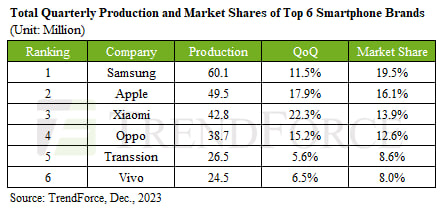
// Source
Business
Underdog phone brand jumped 50%, Samsung and Apple lost ground
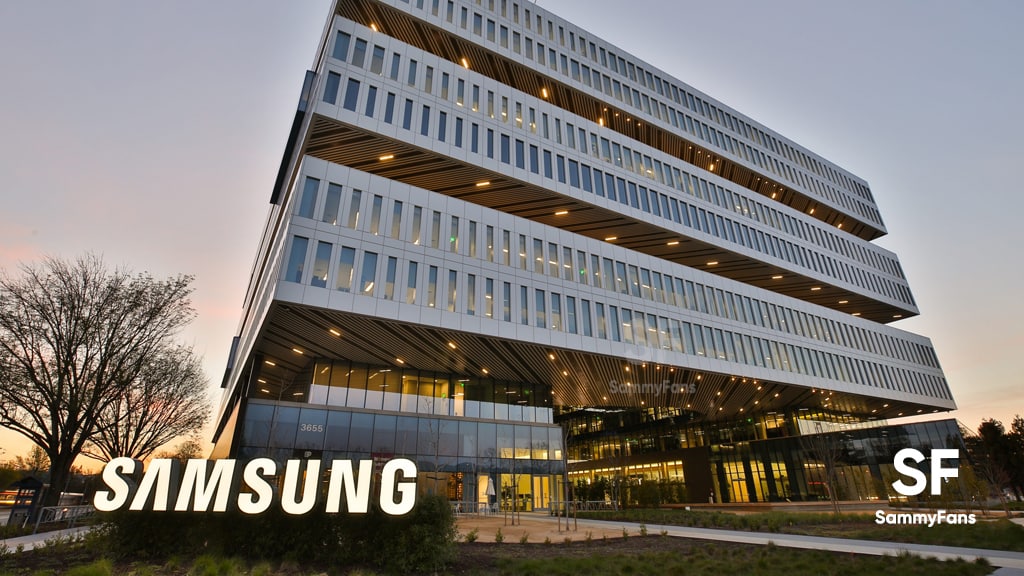
In Q3 2023, Samsung and Apple’s market share slightly declined, while an underdog Chinese phone brand appeared on the top 5 chart. In a recent development, Canalys published market research data for the third quarter, revealing Tanssion as the fifth best-seller globally.
According to the info, Samsung and Apple lead total sales with 20% and 17% market share, yet both have fallen from their 22% and 18% levels in 2022. However, Tanssion, the maker of Tecno, Itel, and Infinix phones, climbed from 6% global market share last year to 9% in 2023, a 50% jump.
Follow our socials → Google News | Telegram | X/Twitter | Facebook | WhatsApp
Apart from this, Xiaomi matched last year’s share only by “recovering” from a terrible first half of 2023. At the same time, OPPO has fallen steadily over the past two years, while fellow BBK brand vivo lost the top-5 slot it’s owned for years.
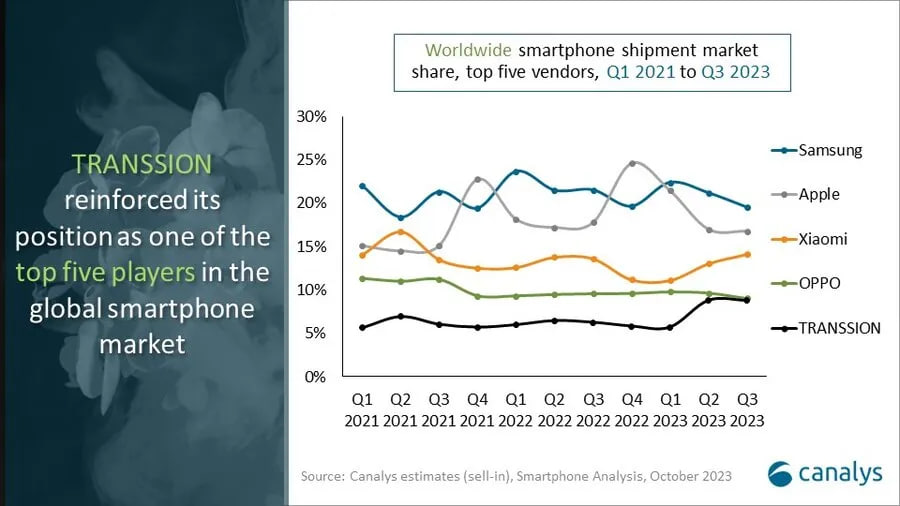
Overall, the global smartphone market underwent a slight drop of 1% in Q3 2023. Bolstered by regional recoveries and new product upgrade demand, the smartphone market recorded a double-digit sequential growth in Q3, ahead of the sales seasons.
Business
Samsung enjoyed 2023’s last victory over Apple?

Recently, research agency Counterpoint Research published their latest analysis. The report reveals that Samsung continued its leadership in the third quarter of 2023, while Apple remained in the second spot. However, both OEMs faced a decline of 1 percent year over year.
According to CR, slower consumer demand is the main factor in the dwindling sales. The market did see a slight 2 percent growth in Q3 compared to Q2, likely driven by last month’s iPhone 15 series launch. Samsung secured 20 percent market share, while Apple grabbed 16 percent sales.
Follow our socials → Google News | Telegram | X/Twitter | Facebook | WhatsApp
The Galaxy A-series was the key driver for the South Korean smartphone maker. Apple came in second with 16 percent of the market while Xiaomi rounded out the top three with its 12 percent share. Oppo (10 percent) and vivo (8 percent) were the remaining brands in the top five charts.

The newly released iPhone 15 series will help Apple score a lead over Samsung in the fourth quarter of the year. The results will arrive by early next year, and it’s expected that the US phone maker could surpass Samsung. Major camera upgrades and USB-C helped Apple register strong sales.











